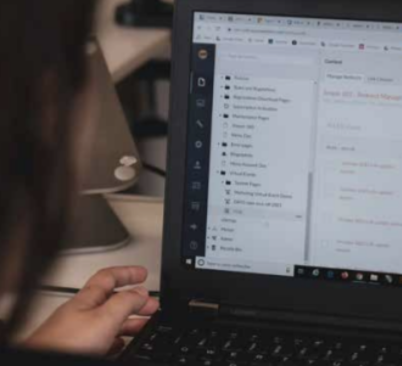Students, staff complain promotional campus emails flood their inboxes

Junk emails are filling student and staff inboxes and some wonder whether the volume of causing recipients to tune out.
PNW students and staff are drowning in a sea of emails.
To keep everyone informed about the university’s services, opportunities, athletics, cafeteria menus and other things, various university departments and administrators will send emails to all students or all students and all staff. The result can be dozens of PNW-related emails landing in the average inbox.
“I get around 12-15 emails per day,” said freshmen Page Hough, a Psychology major. “I usually go through my emails very quickly to mark them as read. It stresses me out having a lot of emails in my inbox so I mark them as read very quickly.
“I will often have an important email but then forget because I get so many other emails,” she said. “If I do remember, then I have to search through so many emails to find it, which can become quite frustrating.”
One marketing expert says the email information effort may be backfiring.
“Flooding [inboxes] leads to disengagement,” said Matthew Hanson, clinical associate professor of Marketing. “Some things may break through, but these are things that people are already looking for.”
He warns that indiscriminate use of email lists can bombard people with messages that do not pertain to them. That, Hanson said, can lead to recipients tuning out.
“Email is a relationship,” he said. “Think about dating someone and they call you 10 times a day. … It’s a personal business.”
As of March, 119 PNW email accounts have permission to send messages to all students; 115 can send messages to all faculty and staff.
The result is frustration.
“On my school email I can get up to 15 emails daily,” said freshman Paige Fisher, an Engineering major. “I keep emails from building up by marking all as read, or else I would have thousands.
“I don’t block anything, though, because I never know what might be sent, and would like to see things that interest me,” she said.
Some faculty members are just as annoyed.
“I get many emails, between personal and Purdue accounts. … I can easily have hundreds in a day,” said Michael Mick, associate professor of Information Systems. “The smallest number are those needing a response from me, such as students or true university business requiring my attention.
“Even though I mark many as junk, certain ones seem to keep sending the same kind of emails using different originator addresses,” he said.
For their part, the people sending those mass emails say they are trying to help the university community by keeping everyone informed of useful services and activities.
Matt Dudzik, assistant athletic director for Intramurals and Facilities, uses mass emails to increase intramural registration
“In the past, before I started as Intramural Director, the only methods of attracting students were entry forms in the FRC Building and flyers posted around campus,” Dudzik said. “Since not all students use the gym, we needed to reach more students and – other than tabling – we added emails.
“It worked,” he said. “The past two years, email has been our best response to sign-ups.”
Diane Wisniewski, PNW’s food service director, also uses the email distribution list to tell students of weekly menu changes.
“We use emails to feature limited-time offer items, specials and we market the promotions we have,” Wisniewski said. “They are for the daily average of 425 students who use the cafe and the daily average of 220 students who use the market in the Classroom Office Building.”
Hanson suggests the university consider reforming its approach to email marketing, so that everyone could opt-out of communications they deem irrelevant. It’s an approach that he has recommended to corporations seeking to improve employee communications.
At PNW, faculty and staff have the option to opt out of some emails, however, students do not.
“Introducing a preference center would allow recipients to opt in or out of certain threads,” said Hanson. “That would result in greater engagement for those who are interested.”

